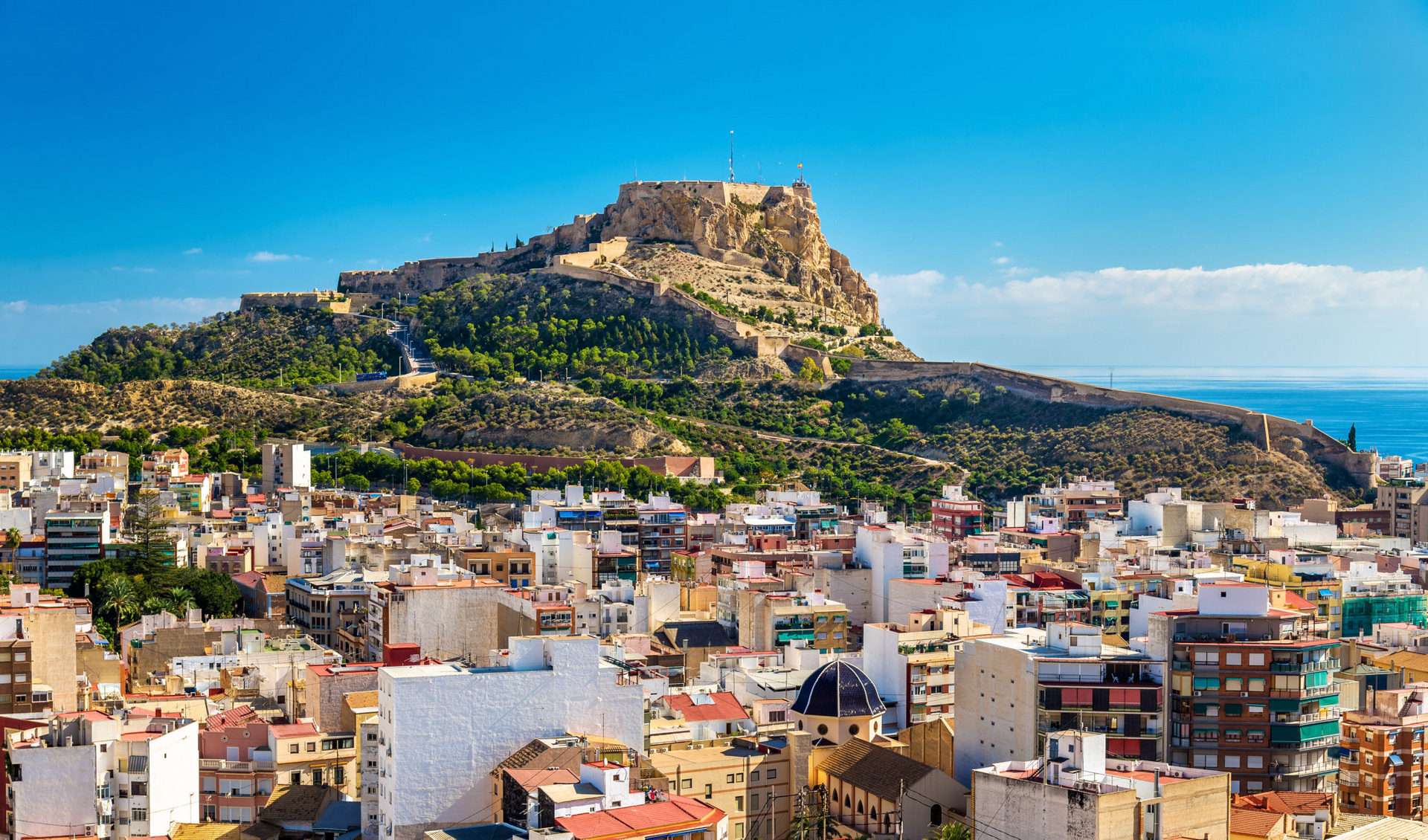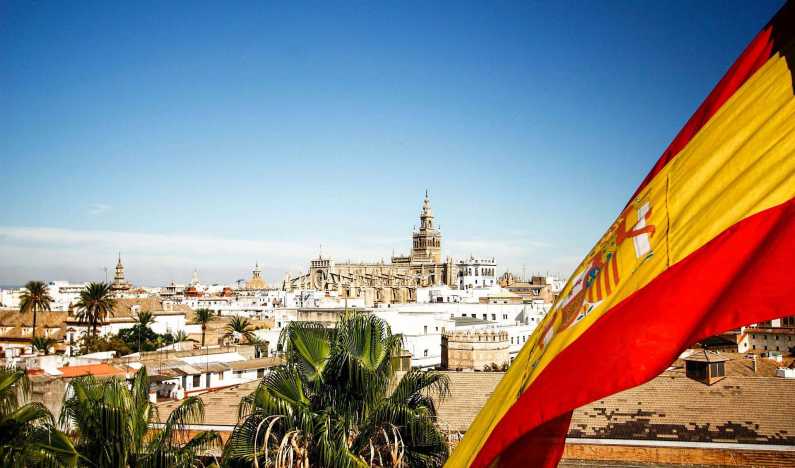Alicante in August beckons not only foreigners but also Spaniards living in Madrid and other big Spanish cities, where it becomes impossible to breathe among the stone walls in summer. After the Balearic Islands and the Costa Brava, the Costa Blanca, with its centre in Alicante, is the second most important tourist region. This is due to the gorgeous sandy beaches and the warm water of the Mediterranean Sea.
Kidpassage tells you how to have a good time with the kids in a famous Spanish resort in the last month of summer.
Contents
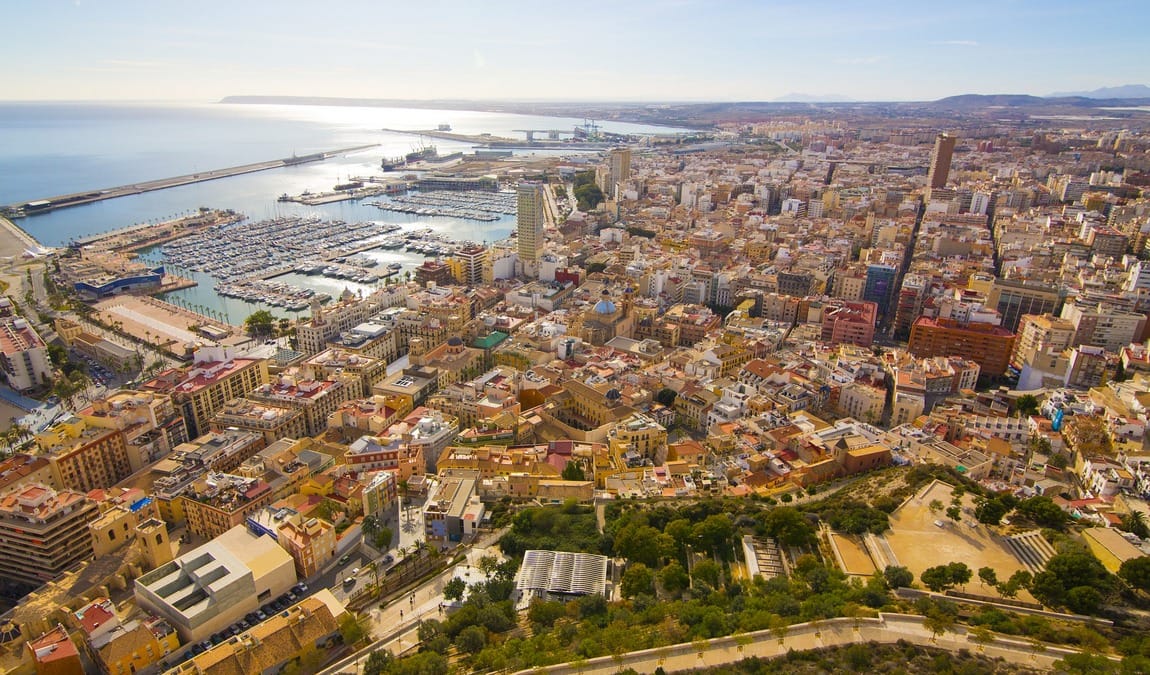
Photo: pixabay.com
Holidays in Alicante in August: pros and cons
Alicante offers the perfect setting for a relaxing beach holiday in mainland Spain: the city is not too big (hence not noisy), but not so small that it gets boring. Under the palm trees are pedestrianised areas with boutiques, cafes, bars and restaurants.
As in any tourist city, Alicante has many hotels, guest houses, apartments and cheap hostels to suit your accommodation needs.
The only point: in high season, you should book early to avoid staying in the central railway station area.
As a university town, Alicante also attracts young people who spend their student days here. This town is attractive to culture, beach lovers, and those who are young at heart and like to diversify their holidays with activities and parties.
The benefits of the season are so numerous that tourists from all over the world flock here:
- warm sea;
- it's not as hot as other cities in mainland Spain;
- long daylight hours;
- favourable time for all water-related activities;
- time of music festivals;
- developed tourism infrastructure;
- cheap shopping.
The disadvantages of the season are:
- you need to book accommodation early;
- it's a vacation period for locals;
- long summer siestas;
- weather and time constraints for sightseeing;
- increasingly abundant jellyfish;
- long queues at attractions, ticket offices and tourist areas;
- overcrowding on the city's main beaches;
- air conditioning in the room is required;
- maximum UV index;
- high seasonal prices.
If you get a chance to come here in August, don't miss it. Reviews of holidays in Alicante in August often begin with the words: "I was lucky to be there ...".
Weather in Alicante in August
August days in Alicante are hot; evenings and nights bring a welcome coolness, but this is not the case every year. Sometimes the difference between day and night temperatures is minimal.
The weather in August is conducive to long beach holidays and fewer excursions. The only exceptions are trips to the mountains, where refreshing winds blow all year round. In September, the weather conditions provide the most comfortable atmosphere for a holiday.
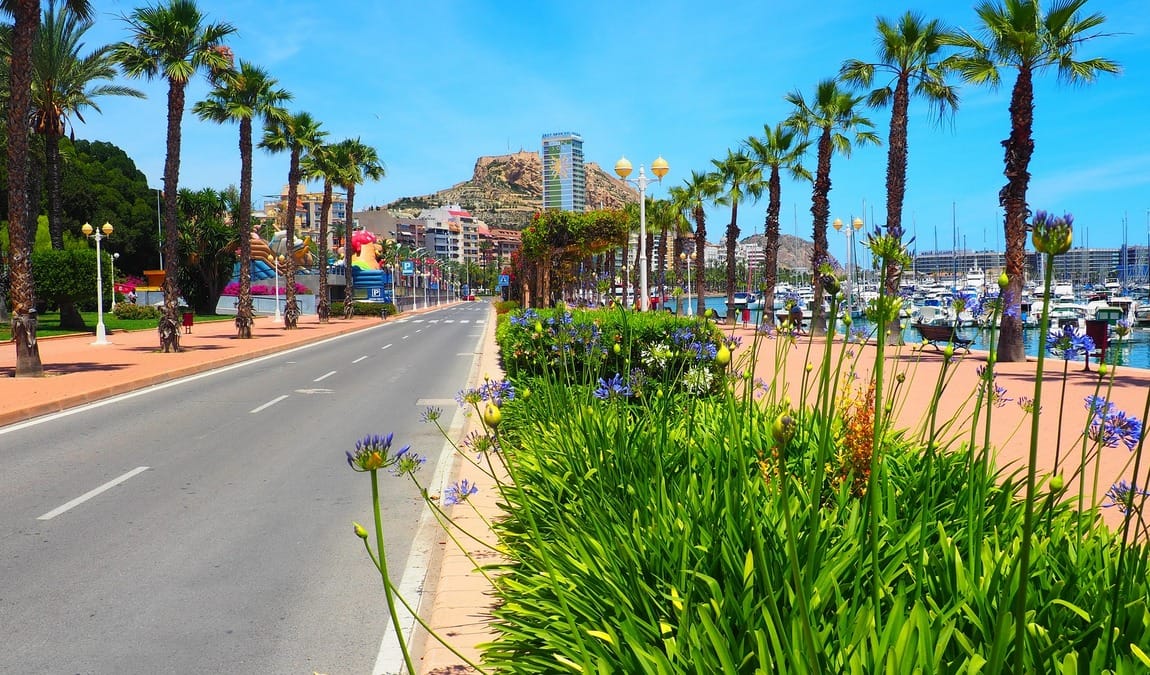
Photo: pixabay.com
The weather in early August is stable, sunny and hot. As a rule, there is no rain and few clouds in the sky. A light easterly wind blowing up to 8 metres per second is pleasant.
The temperature in Alicante in mid-August rises above +25 °C during the day and ranges from +20 °C to +26 °C at night. Historically, the hottest period is the third week of the month.
At the end of August, the weather in Alicante does not indicate that nature farewells to summer. For this town, the summer (and beach) season will last at least another month.
Air and water temperature
The temperature in Alicante in August, the hottest month of the year, can rise to +33 °C and even +39 °C. On the coldest nights, the thermometer reads at least +18 °C.
As Alicante is located on the Mediterranean coast, it is influenced by the Mediterranean climate, which is characterised by a relatively small difference between the winter minimum and summer maximum temperatures.
Air temperature in Alicante in August
The average temperature in the resort in August is +31.5 °C during the day and +23.6 °C at night. On 22 days of the month, the temperature exceeds +30 °C at midday.
Sea water temperature in Alicante in August
The average water temperature in the Mediterranean Sea is +26.8 °C with highs of around +28 °C.
Precipitation
August in the resort is not spoilt with rain: it falls for a maximum of one day a month. The monthly precipitation amount is 12.3 mm. The average annual rainfall in Alicante is one of the lowest in Spain and Europe.
Sunny, cloudy and overcast days
The resort is sunny for almost a month: it is clear on 29 days and overcast for a few hours. The daylight hours are 13-14.1 hours, while the average daily sunshine hours are 12.3 hours.
Beach Holidays
During the hottest month of the year, Alicante's beaches are hot in the morning, afternoon and evening. Sun protection is essential, and it's best to hide indoors during the midday hours.
Tourists prefer to spend time on the beach from early morning until late evening, hiding under beach tents and umbrellas and swimming in the warmest sea. This is favoured by the developed beach infrastructure with many cafes, sports grounds and other places for leisure activities on the seafront.
The sea surface in Alicante is calm until lunchtime, and in the afternoon, the wind usually picks up, kicking up waves and sand.
The bay on the northeastern edge of the resort is quiet and peaceful: there are no big waves and, thanks to its distance from the centre, no excessive noise.
Another plus is the palm trees, which can successfully replace paid umbrellas. Due to the calm water, Albufereta and Almadraba beaches are known as "children's" beaches, while there are often strong waves at Saladares in the Urbanova area.
Many people spend time at the city's popular Albufereta, San Juan and Postiguet beaches.
The beginning of August marks the start of the holiday period for many locals not employed in the tourist sector. San Juan Beach is the most comfortable, relaxing place during the high season.
In contrast to Postiguet in terms of facilities, San Juan wins because it is never crowded. Much space, fine clean sand and a gentle entrance to the sea create comfortable conditions for holidaymakers.
For children on the beach, special fenced playgrounds are adjacent to sports areas.
.jpg)
Photo: pixabay.com
Tour Holidays
In August, tour guides prefer to organise walks around the city after 17:00, when the sun stops shining, and many museums close for a summer siesta from 13:00 to 16:00 or 17:00 daily.
Alicante has little vegetation, so finding shade on its streets isn't easy. But a few squares and city parks will shelter you in scorching heat under the crowns of century-old ficus, elm trees, or traditional subtropical palms.
Staying in Alicante, travellers will not miss the famous Santa Barbara Castle. From Postiguet Beach, you can walk through a pedestrian crossing to the lift that takes you directly to the castle, up to Benacantil Mountain.
To the west of the mountain is the historic city centre, adorned with clean streets, ancient temples, museums, seaports, trendy and expensive shops, hotels, and restaurants. There is plenty to do here, night and day.
The Esplanade promenade is the resort life epicentre, lined with 6 million multi-coloured marble tiles. In the quiet Santa Cruz neighbourhood, the low buildings with wrought iron balconies and narrow streets retain echoes of the resort's Moorish past.
For unforgettable family adventures, plan a day trip out of town to places such as:
- Zoos and safari parks Terra Natura, Safari Aitana, Rio Safari Elche.
- Mundomar Animal Park.
- Toy museums in Onil, Polop, Guadalest, and Denia.
- Valor Chocolate Factory, where in mid-August, during the traditional Chocolatissima, you can taste exquisite chocolates for free.
Active Holidays
In Alicante you can find all kinds of water activities, they are very popular here. Surfing, diving equipment, jet skis, catamarans, light sailing boats, etc., are available for rent right on the beaches.
There are kayaking, canoeing, sailing, rafting, water canyoning, boat tours and cruises centres. Flyboarding, skydiving, paragliding, and hot air ballooning provide extreme sensations.
.jpg)
Photo: aqualandia.net
Aqualandia and Aqua Natura are located in the neighbouring town of Benidorm and are considered the best in Spain. Rojales also has a water park.
You can get lost in the variety of water slides and not see one that is identical to another. At Aqua Natura, daredevils with special equipment can swim with stingrays and sharks.
The province of Alicante is also famous for its theme parks. Still, for children under 5 or 6, staying in town and trying out the rides at El Mundo de los Ninos or taking an evening ride on the El Carrousel Alicantino near the harbour is better.
There are plenty of opportunities for golfers to play and learn at Font del Llop Golf Resort, Footgolf Costa Blanca, Campo de Golf Villamartin and other courses. There are 12 golf courses in the vicinity of Alicante. The end of August marks the end of the low season for this sport, as summer is too hot for a perfect game.
At La Ofra Ranch, professional instructors give riding lessons, serve delicious snacks and lead horseback riding excursions along the river valley, past lemon and orange plantations. Overall, Alicante offers a good experience in any sport or activity.
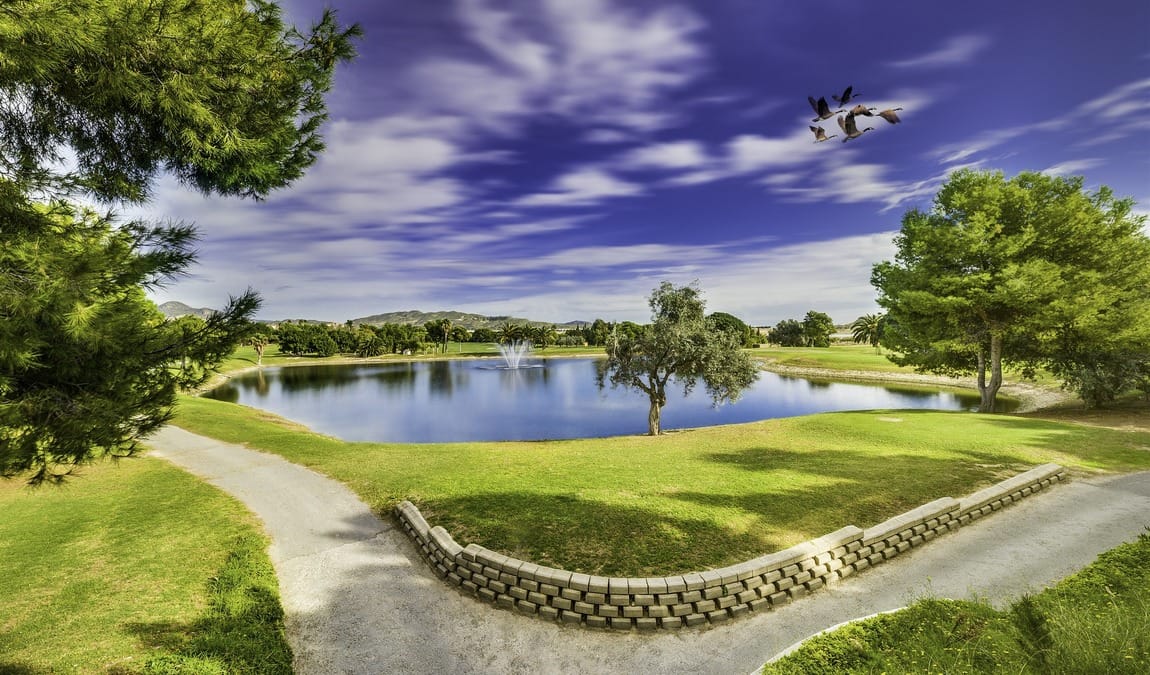
Photo: pixabay.com
Holidays, events and festivals
The festivities in Alicante in August are a delight for music lovers, with plenty of music to suit all tastes and festival parties. Large spaces are reserved for camping, privileged entertainment areas and car parks for participants.
During the summer season and until the end of September, the Alicante Department of Culture organises a series of concerts as part of Estiu Cultural, including concerts by the Municipal Symphony Orchestra and bands of various genres.
All concerts start in the evening, and many of them are free of charge. Cultural and entertainment events (not only musical) occur in public parks, art centres, libraries and museums and are aimed at audiences of all ages. During "Verano de Alicante", with the alluring aroma of paella wafting through the air, you can see how the Spanish combine music, song and flamenco.
At the end of July and beginning of August, Alicante honours its patron saint, Our Lady Mary.
The celebration is called Virgen del Remedio and has a more religious character: for several days, holy masses are held in the Cathedral of St Nicholas, and then, to the music of a symphony orchestra, the image of the Patroness is solemnly carried through the streets and squares. The festivities are adorned with an afternoon fireworks display from the Santa Barbara Castle.
On 10 August, Busota hosts the St. Lawrence Fiesta, commemorating the folk tradition of almond harvesting, the region's traditional culture. In the last week of August, the village of Aguas also celebrates its patronal holiday.
Some activities, which date back to the 19th century, recreate the warm and pleasant atmosphere of the past.
15 August is the Catholic feast of the Assumption of the Blessed Virgin Mary. In the city of Elche, in the Basilica of Santa Maria, there is a unique medieval religious performance called the "Mystery of Elche". The mystery scenario reproduces the original text from the city's liberation from the Moors in the 13th century.
Recognised by UNESCO as a masterpiece of the cultural heritage of humanity, the festival attracts many spectators to Elche. Those who cannot attend the free main performance over two days, 14 and 15 August, can buy tickets for the dress rehearsals.
Cost of vacation
Prices in Alicante in August are higher than any other time of the year, with costly hotels.
Many tourists prefer to rent self-catering apartments and buy fresh and inexpensive products at local markets to save money. Compared to Malaga, hotels with the same characteristics are cheaper in Alicante during the high season.
Package Tours
In July and August, tour operators sell vouchers at the highest price. In summer, a seven-day budget tour to Alicante costs 800 euros for one person. In September, tours become cheaper by almost 15%.
Accommodation
Hotels in August offer rooms at an average price of 120 euros per night. This is 13-15% more expensive than in the previous month and 20% more expensive than in September.
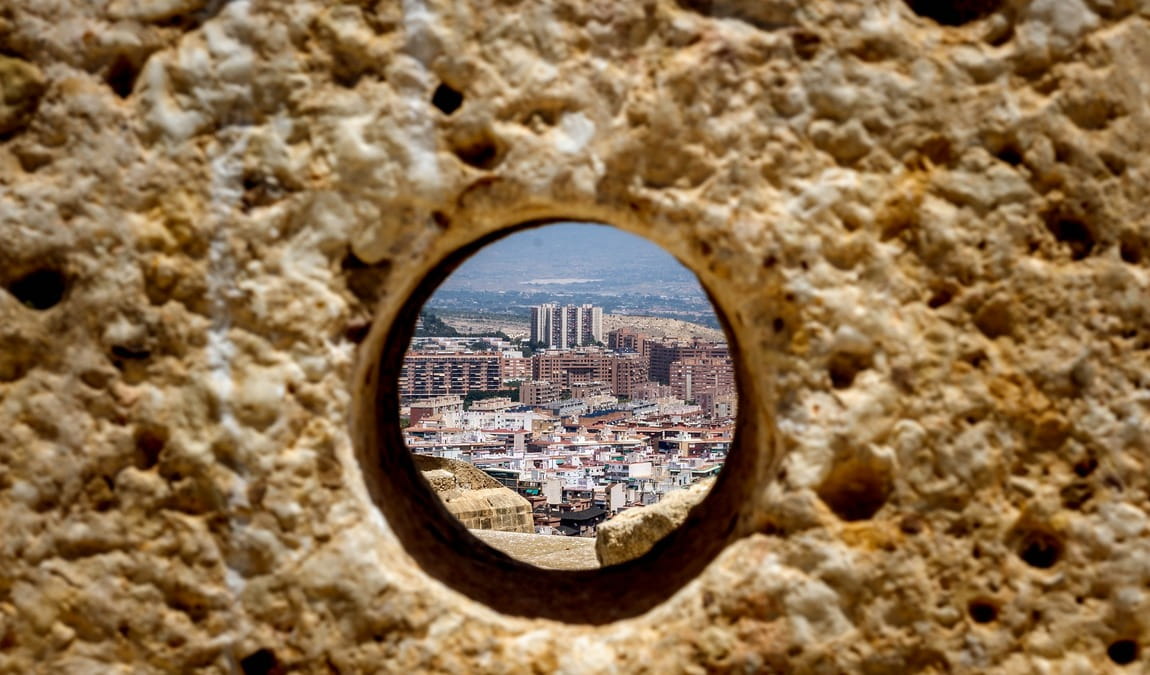
Photo: pixabay.com
Airfares
The average price of air tickets to Alicante in August is a few per cent lower than in July. The same ticket can be purchased in September with a 10% discount. The subsequent increase in the cost of a flight takes place in December.
Food and Transport
An inexpensive lunch (of the day's offerings) in a café in Alicante costs €10-12, while street fast food costs €3-€5 euros per portion.
A varied dinner for two with a glass of wine or beer costs €30. Many restaurants take orders for a meal from a minimum of two portions.
The famous tapas in bars cost around €1 a piece. However, it is impossible to limit yourself to one sandwich.
The price for a transfer from the airport to the city centre starts from €27 euros, up to €2 for public transport. Guides charge €50 to €300 for their services, depending on the distance travelled, the number of people in the group and the type of transport chosen.
- What to Eat in Spain — 48 Spanish Foods You Must Try
- Spanish Fruit and Vegetables — A Seasonal Guide
Tips for holidays with children
Alicante is one of the few cities where you can live in the centre for a beach holiday. For retirees and families with children, it is an ideal option. From the popular tourist accommodation, you have to walk to the beach for an average of 10-12 minutes, mostly on pedestrian streets. In this case, walking with children is not a burden.
Good transport links make it possible to explore the surrounding area. In search of clean water and forests, you can rent accommodation in the suburbs of Alicante, north of the city.
On the southern part of the coast, it is much hotter in August, and there is less vegetation.
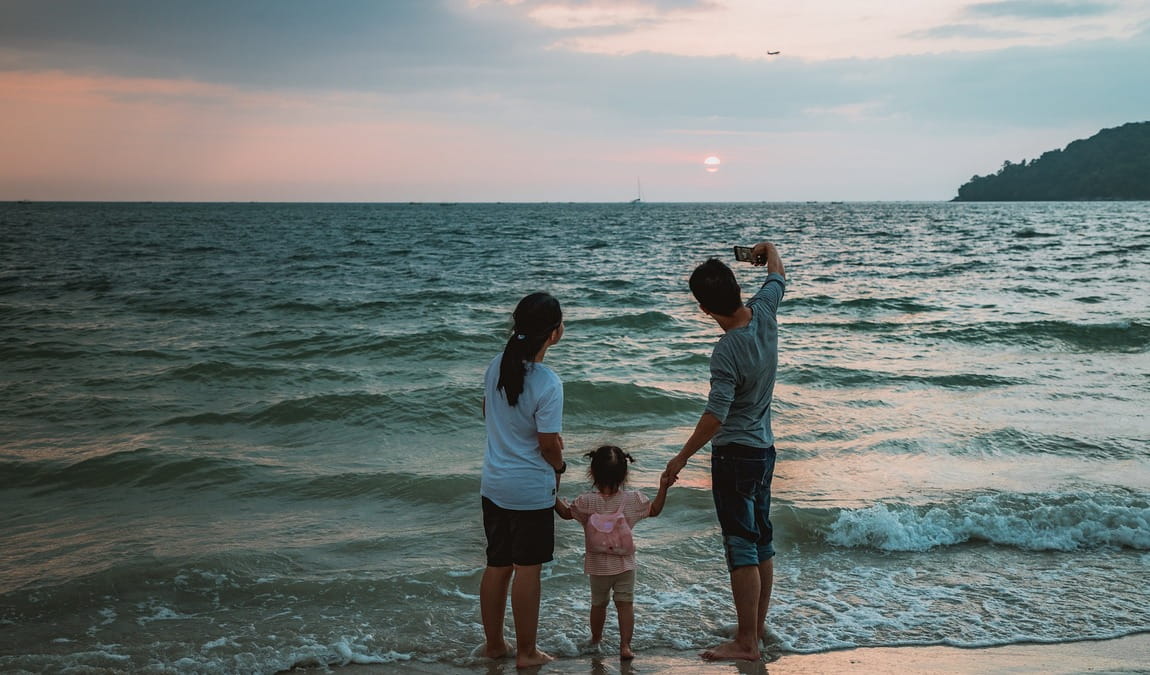
Photo: pixabay.com
For holidaymakers with schoolchildren who start school in September, the ideal time to visit Alicante is the second half of August. The maximum sea water temperature is reached at this time and will last for a long time, and the sun does not bake so much. Pre-school children can be postponed until September.
In the hot climate, doctors advise to limit your sun exposure between 10:00 a.m. and 3:00 p.m, wear only natural fabrics, hats, glasses and long-sleeved clothes, drink more water, eat light salads and fruit, not eat fatty foods, and apply sunscreen to the skin.
As for food, remember that children's menus often mean unhealthy fast food in many cafes and restaurants.
In Alicante shops, you can buy fresh milk from the fridge. In Malaga, conversely, only ultra-pasteurised milk is sold due to the extreme hot weather.
When travelling by intercity bus, choose better the normal type than the supra economy. The second type of bus is without a toilet on board, with regular stops of a few minutes, making it impossible to get off when needed.
Car rentals are at their highest in August, and finding parking spaces in the city centre isn't easy.
Holidaying in Alicante in August, you can enjoy all kinds of leisure activities thanks to the warm climate and the warmest sea of the year.
Even excursions will be favourable if you do them when the heat subsides. Read about the rich choice of entertainment in Spain on the Kidpassage portal in detailed author's reviews.



